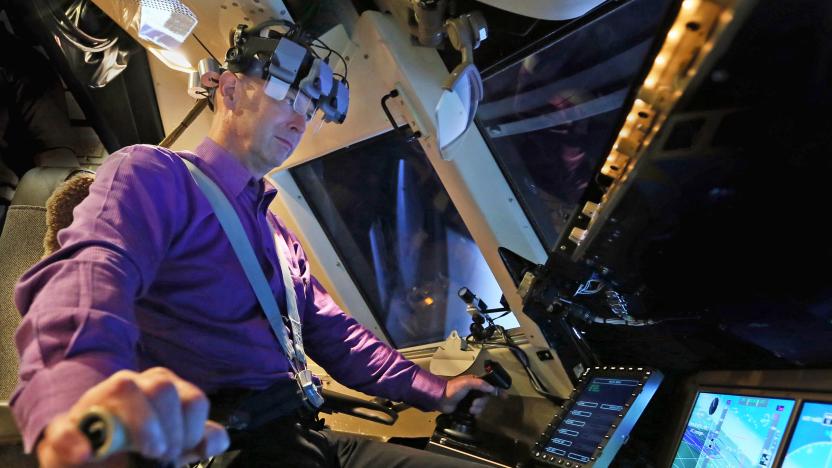AirlineIndustry
Latest

NASA and American Airlines team up to improve cockpit displays
In order to improve flight training, cockpit displays and other necessary flight deck operations, NASA is drawing on the experiences of some 15,000 test pilots who are already in the air with American Airlines. The two groups announced this week a five-year partnership that will allow the space agency to observe, "how flight crews interact with technology in real time, in real life," NASA Langley researcher Steve Young explained. "It gives us a better idea not only about how current technology works, but how designs for future flight deck systems can provide the most impact."

Qantas trials in-flight WiFi between Australia and US
While plenty of US domestic flights have their WiFi provisions sorted, international connectivity remains pretty rare. Attempting to bring another time-killing option alongside all those middling in-flight Marvel movies, Qantas has started testing wireless internet on its 14-hour flights between Los Angeles and Australia. The trial will run for eight weeks across six of Qantas' A380 super-jumbos. Access during the trial will be free, however it'll be limited to first and business class passengers, with data allowance currently capped at a weedy 100MB for laptops and 32MB for mobile devices. Well, at least you're not walled inside an online store.

Gogo goes global: partnership with Inmarsat to give you the internet on international flights
Ahh, Gogo, what a fantastic addition you've been to domestic airline travel. Besides keeping rowdy kids entertained with internet access, it affords well-traveled tech bloggers the ability to do what we do at 30,000 feet. And now, Gogo's wondrous WiFi will do the same for international passengers thanks to Inmarsat's Global Xpress satellite internet service. The partnership adds speedy Ka-band satellite technology to Gogo's existing air-to-ground service starting in 2013. After launching the Inmarsat-5 satellite in midyear, up to 50Mb/s speeds will be at your flying fingertips in some (currently undefined) regions, with worldwide coverage coming in 2014. Full details of your inflight future await in the PR after the break.

Delta intros WiFi-enabled regional jets, Christina Ricci absent from flight launch
You've probably flown the friendly skies surfing along intermittent WiFi, but a hopper flight with the same amenities? Not until now. Delta's continuing its commitment to in-flight WiFi by rolling the service out to its regional jets. Hailing it as a first for its "two-class regional fleet," the airline plans to add 250 Delta Connection jets to the 560 plus roster of currently internet-enabled planes. The carrier's inaugural service flight took off from Atlanta's Hartsfield-Jackson International Airport and treated passengers to free WiFi courtesy of a complimentary 30-day Gogo pass. Now, instead of catching up with those long lost Zzzs and arm wrestling with your aisle frenemy, you can keep up with the Kardashians or relive the Pan Am nostalgia on your cruise through the clouds. Jump past the break to read the company's celebratory spiel for yourself.

Early mid-week shocker: research says we are overly reliant on GPS
Well, this can't be good, but it's certainly not surprising, either. Researchers have concluded that people living in developed nations have become overly reliant on satellite navigation such as GPS devices, and that the results can be... dangerous. Anyone with a think tank could probably figure this one out on their own, but the research shows that such over-reliance on the devices can produce some bad results when said devices inevitably fail out. The report goes a lot father than warning individual drivers, however, and says that systems such commercial airline traffic and those which direct train doors to open also rely on the US-based GPS system, which are all vulnerable to widespread failure should the system encounter any interference or downtime. The report does suggest further development of backup systems -- such as the European-based Galileo system, but essentially concludes that the vulnerabilities are likely to remain. Comforting, huh?


